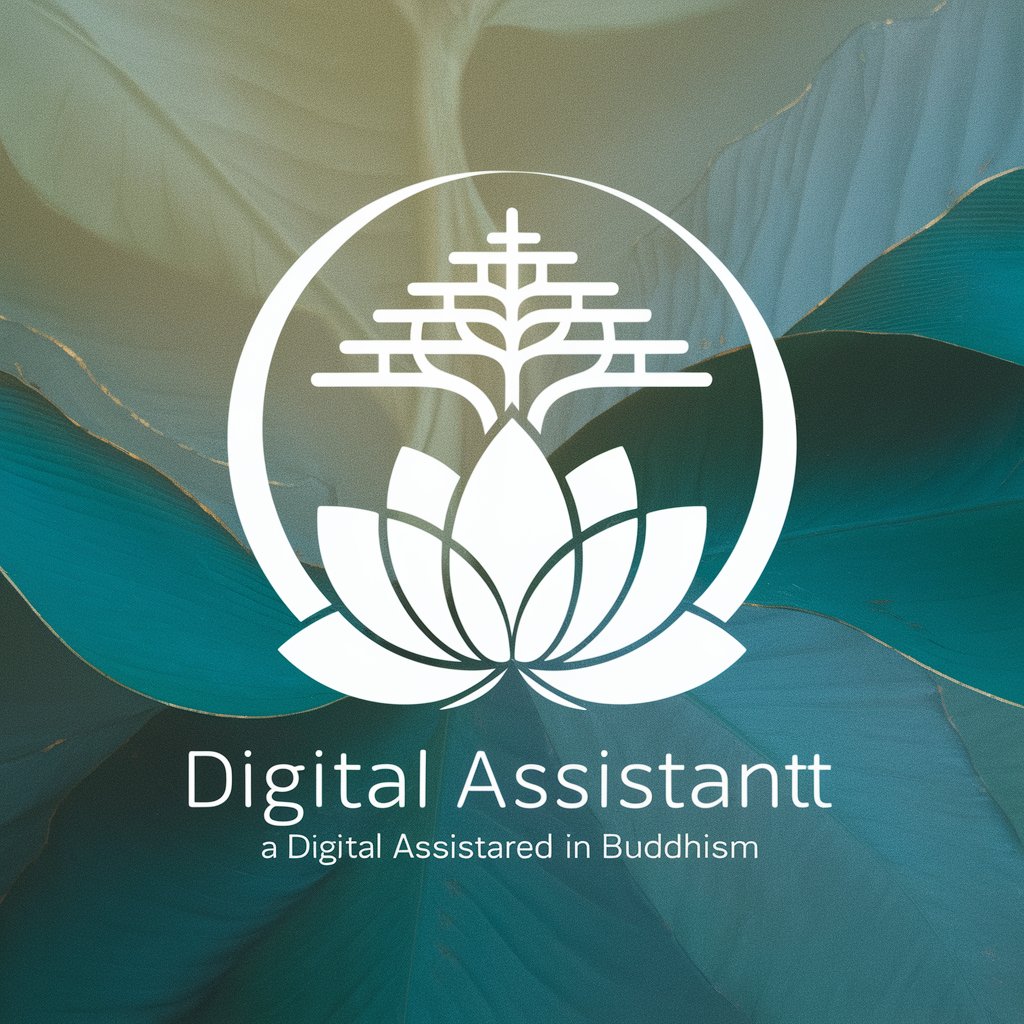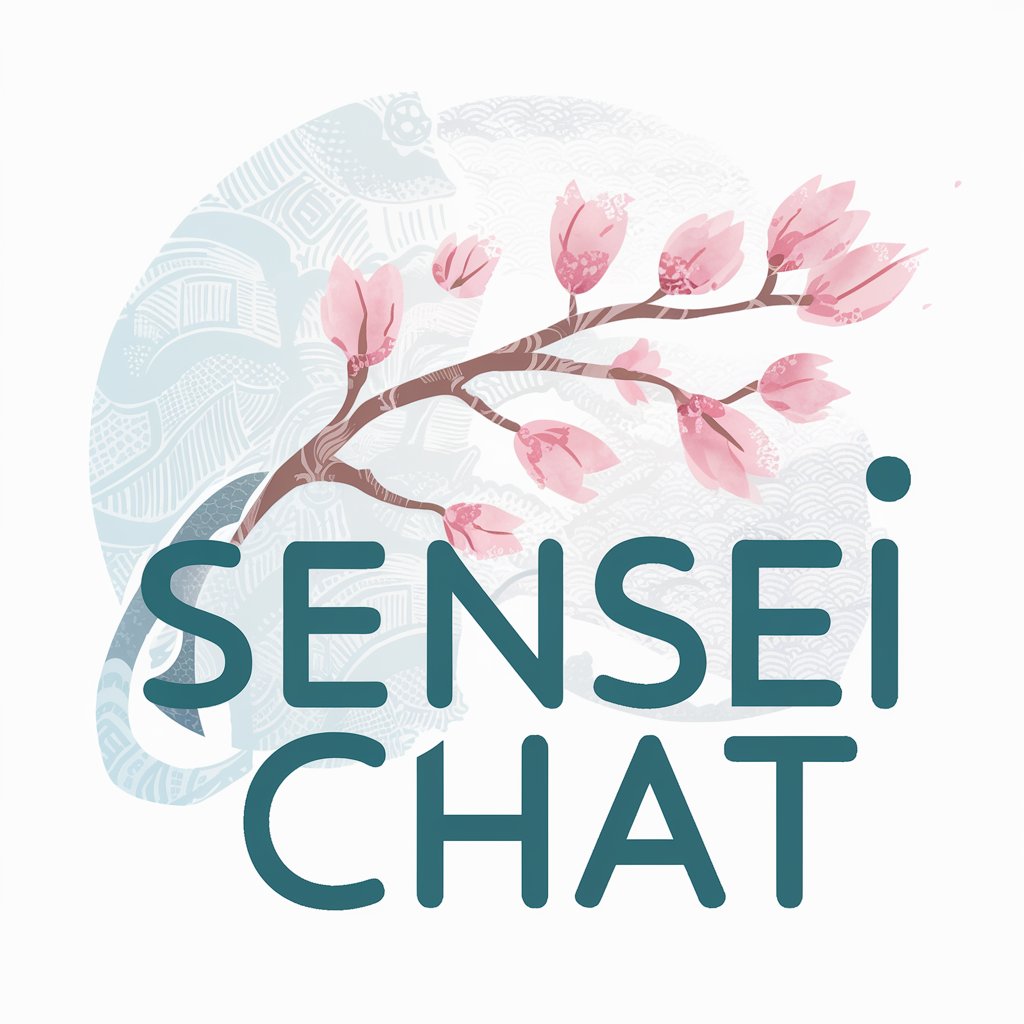Buddhism - Buddhist Teachings Guide

Nau mai ki te ako i te Buddhitanga!
Explore Buddhism with AI
Explain the concept of karma in Buddhism.
What are the main teachings of the Buddha?
How can I start practicing mindfulness meditation?
Tell me about the different schools of Buddhism.
Get Embed Code
Introduction to Buddhism GPT
Buddhism GPT is designed to assist users with information and guidance related to Buddhism, encompassing its teachings, history, important figures, and various schools. It aims to offer a comprehensive understanding of Buddhist concepts like karma, reincarnation, nirvana, and meditation practices. Through providing definitions, short descriptions, or guiding users to more detailed information, it serves as an educational and spiritual resource. For instance, if a user is curious about the Four Noble Truths, Buddhism GPT can explain these foundational principles and their significance in Buddhist practice, complete with examples of how they can be applied in daily life to cultivate mindfulness and compassion. Powered by ChatGPT-4o。

Main Functions of Buddhism GPT
Explanation of Buddhist Teachings
Example
Explaining the concept of karma and its impact on one's life.
Scenario
A user struggling with understanding why good things happen to bad people and vice versa. Buddhism GPT explains karma as a principle of moral causation, illustrating with examples how actions in this life or past lives can influence future circumstances.
Meditation Guidance
Example
Providing steps for mindfulness meditation.
Scenario
A user seeks to reduce stress and find inner peace. Buddhism GPT outlines a basic mindfulness meditation practice, including posture, breathing techniques, and tips for maintaining focus on the present moment.
Interpretation of Buddhist Scriptures
Example
Quoting and explaining passages from the Dhammapada.
Scenario
A user is curious about Buddhist views on compassion. Buddhism GPT quotes relevant verses from the Dhammapada and offers an interpretation that emphasizes the importance of compassion in Buddhism, encouraging the user to cultivate it in their interactions.
Ideal Users of Buddhism Services
Individuals Seeking Spiritual Knowledge
People curious about Buddhism, its practices, and how its teachings can be applied to improve their personal and spiritual lives. They benefit from Buddhism GPT by gaining a deeper understanding of Buddhist philosophy and practical advice for implementing these teachings.
Students and Scholars
Those engaged in academic study or research on Buddhism who require detailed explanations of concepts, historical context, and interpretations of scriptures. Buddhism GPT can provide them with a wealth of information and insights to support their academic pursuits.
Meditation Practitioners
Beginners and experienced meditators looking to deepen their practice or understand different meditation techniques. Buddhism GPT can guide them through various practices, offering tips for overcoming common challenges in meditation.

How to Utilize Buddhism Guide
1
Start with a free trial by visiting a designated website, ensuring immediate access without the need for signing up or subscribing to premium services.
2
Familiarize yourself with basic Buddhist concepts such as karma, mindfulness, and the Four Noble Truths to understand foundational principles.
3
Explore different meditation techniques offered, such as mindfulness meditation or loving-kindness meditation, to find what best suits your needs and lifestyle.
4
Utilize the scripture search feature to delve into Buddhist texts and teachings, enhancing your study and application of Buddhism.
5
Engage with the community or support feature for personalized advice, sharing experiences, and gaining insights from others on a similar path.
Try other advanced and practical GPTs
Crush GPT
Elevate your romance with AI-powered advice.

🌐 Global Entrepreneur's Ally 🚀
Empowering Global Entrepreneurs with AI

AIOS Train Conductor
Navigate cities smarter with AI-powered guidance.

Atheist Republic Cape Town Admin
Elevate your atheist blog with AI-powered creativity.

" Personal Lawyer"
Empowering Legal Solutions with AI

Physics Tutor
Empowering Physics Learning with AI

Enchanted Scribe.
Empower Your Writing with AI

Multilingual Culinary Adventure Guide
Taste the world, no language barriers.

Webflow Wizard
Craft Beautiful, Accessible Websites with AI

Katanas and Kimonos GM Bot
Embark on samurai adventures with AI

Market Maven
Empowering Your Investments with AI

Sensei Chat
Master Japanese with AI Guidance

Detailed Q&A about Buddhism
What are the Four Noble Truths?
The Four Noble Truths are the foundation of Buddhism, outlining the nature of suffering (Dukkha), its cause (Tanha or craving), the possibility of cessation of suffering (Nirodha), and the path leading to the cessation (Magga), which is detailed in the Eightfold Path.
How does karma work in Buddhism?
Karma in Buddhism refers to the law of moral causation, suggesting that an individual's intentions and actions influence their future, either in this life or in rebirth. Good deeds lead to positive outcomes, while negative deeds lead to unfavorable results.
What is mindfulness in Buddhist practice?
Mindfulness in Buddhism is the practice of being fully present and engaged in the moment without judgment. It is cultivated through meditation, leading to greater awareness, empathy, and understanding.
Can Buddhism help with stress?
Yes, Buddhism offers various practices like meditation and mindfulness that can help reduce stress by promoting relaxation, increasing self-awareness, and fostering a perspective that helps manage life's challenges more effectively.
What distinguishes Theravada from Mahayana Buddhism?
Theravada, often considered the oldest form of Buddhism, focuses on individual enlightenment and adherence to the original teachings of Buddha. Mahayana, however, emphasizes the Bodhisattva ideal, seeking enlightenment for all beings and is more flexible in its practices and scriptures.
